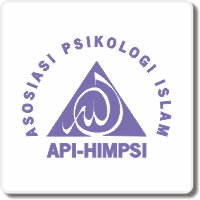Authentic Followership: Criticism of the Authentic Followership Models
DOI:
https://doi.org/10.32923/psc.v3i2.1843Keywords:
Authentic, Critics, Followership, State, TraitAbstract
Scholars have begun to shift their focus from leadership to followership. The results of several studies indicate that followership has several positive impacts. One type of followership that exists is authentic followership. Several scholars have created several authentic followership models that have been published in journals. In this paper, we will discuss the strengths and weaknesses of existing authentic followership models. The method used in this paper is by conducting a scoping review to answer the research objectives. Scoping review is a method for synthesizing and categorizing research results based on the literature review that has been carried out. Furthermore, the analysis used in this scoping review is thematic analysis. As a result, each authentic followership model has its own strengths and weaknesses. In addition, based on the perspective of the underlying theory, the three existing authentic followership models can be divided into two perspectives. The two perspectives are state and trait perspectives. This paper will also discuss the criticism of the state and trait perspectives. The practical implication of this paper is that there is a need to develop an authentic followership model based on the results of existing research.
Downloads
Published
Issue
Section
License
Copyright Notice
The Psychosophia: Journal of Psychology, Religion, and Humanity is under the Creative Commons Attribution 4.0 International (CC-BY 4.0) License, according to which:
1) Authors retain copyright and grant the journal the right to first publication, with the work simultaneously licensed under the Creative Commons Attribution (CC-BY 4.0) that allows the sharing of articles published with the acknowledgment of authorship and the initial publication in this journal.
2) The authors are authorized to make additional contracts separately for distribution of the version of the work published in this journal (for example, publication in an institutional repository or as a chapter of the book), as long as there is recognition of authorship and initial publication in this journal.
3) Authors are authorized and encouraged to publish and distribute their work online (for example, in institutional repositories or on their personal pages) at any time before or during the editorial process, as it increases the impact and reference of the published work.






